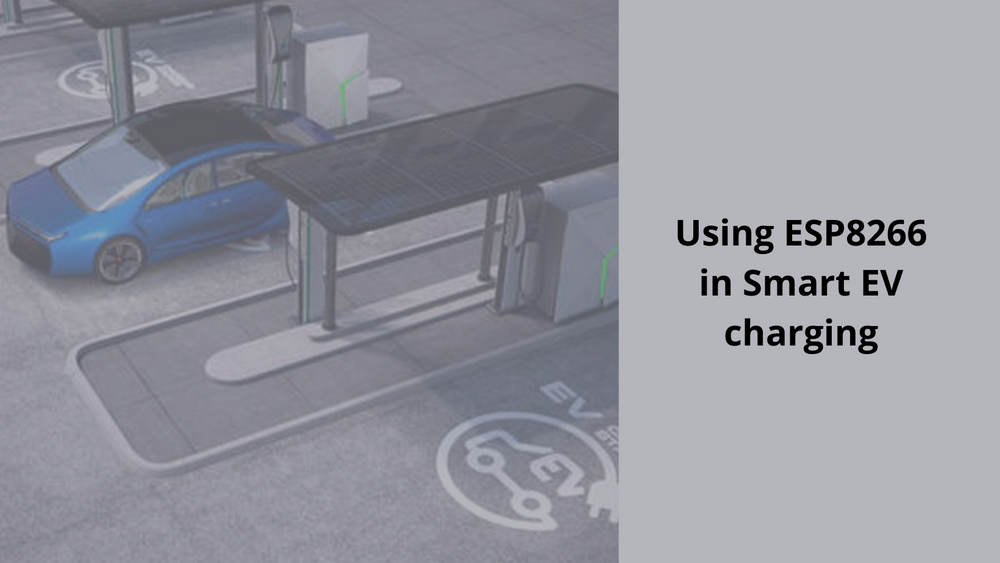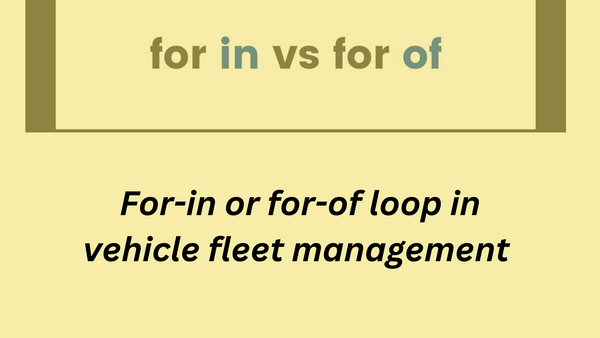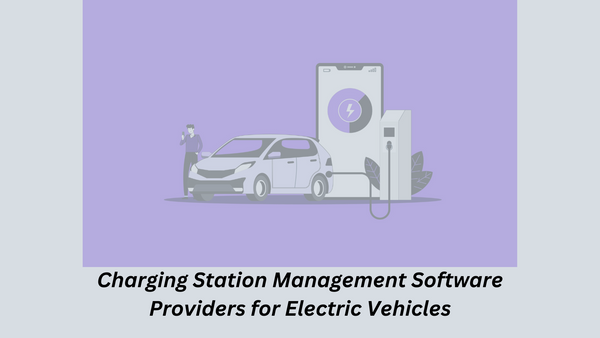Using ESP8266 in Smart EV charging
Hello people. This article discusses about using ESP8266 in Smart EV charging. The internet of things has many applications. One of those is Smart Power Monitoring and Control Systems.
Energy efficient devices can be designed in IoT, which can reduce both, the power consumption and the human effort required to do so. A smart charging system that automatically controls its behaviour using the webserver and the phone which is being charged is a cool IOT application. Especially in the current trend of EVs.
For a public electric vehicle (EV) charger IoT connectivity is crucial. Without it, it will not be possible to charge a car. There are a number of transactions that have to take place and information that needs to be exchanged. The first obvious one is the payment transaction and/or authorization of a membership card allowing a charging to take place. In addition communication with the grid, pricing updates, monitoring of the charger and more.
Are you looking to start your business in the electric vehicle industry? We provide software development, web application development, mobile application development, charging stations management app, electric vehicle fleet management software development, cyber security and all software services. Please check our home page here https://iwheels.co/
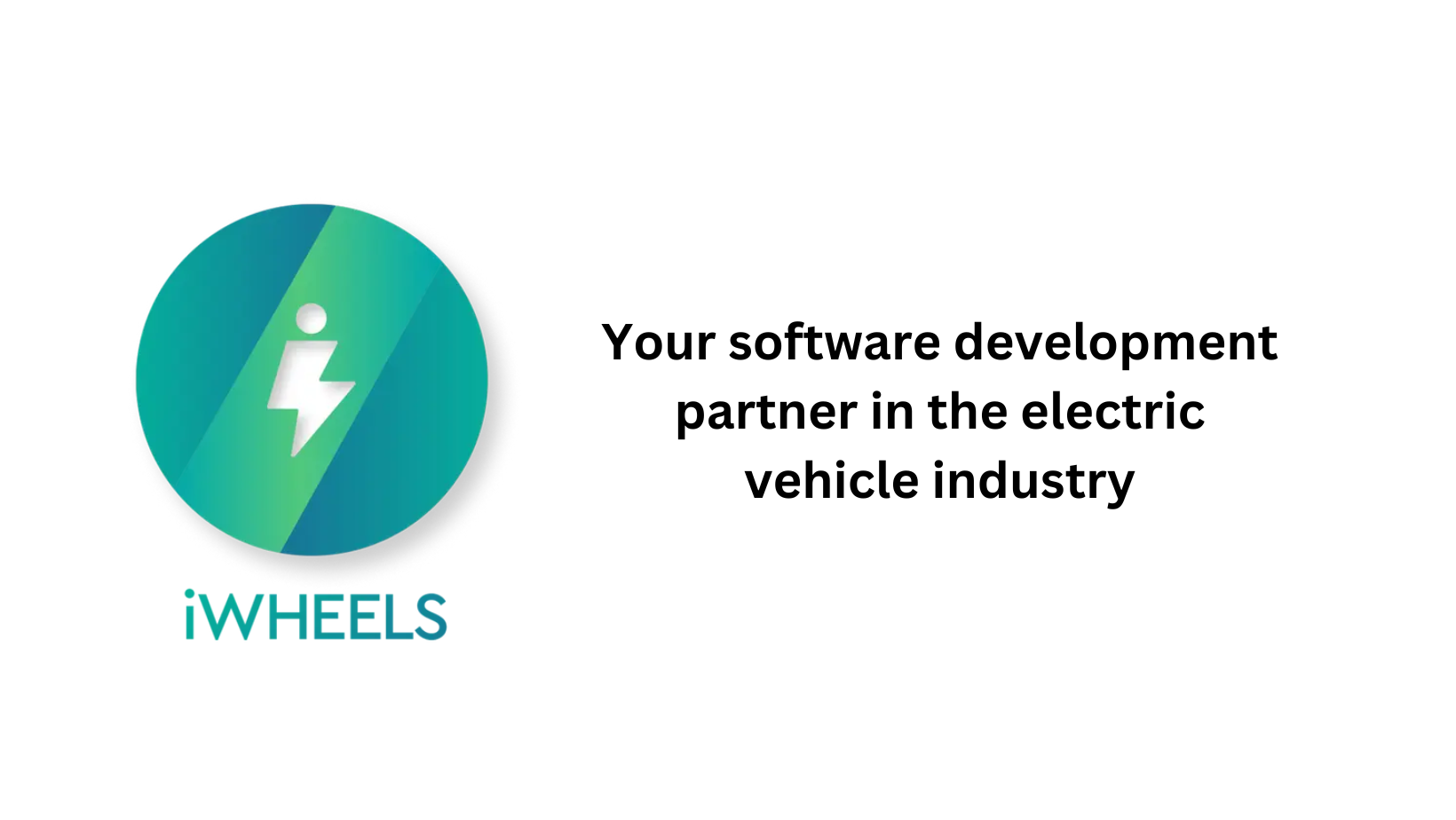
Ok. Let's get back to the article.
The IoT device being used in this case is a ESP8266. The Webserver which will be stored on the ESP8266 module acts as the IoT platform. As the webserver is platform independent, it can be used on any device, like mobiles and laptops, these devices relay commands, and in turn the web server toggles the charger through the ESP8266 module.
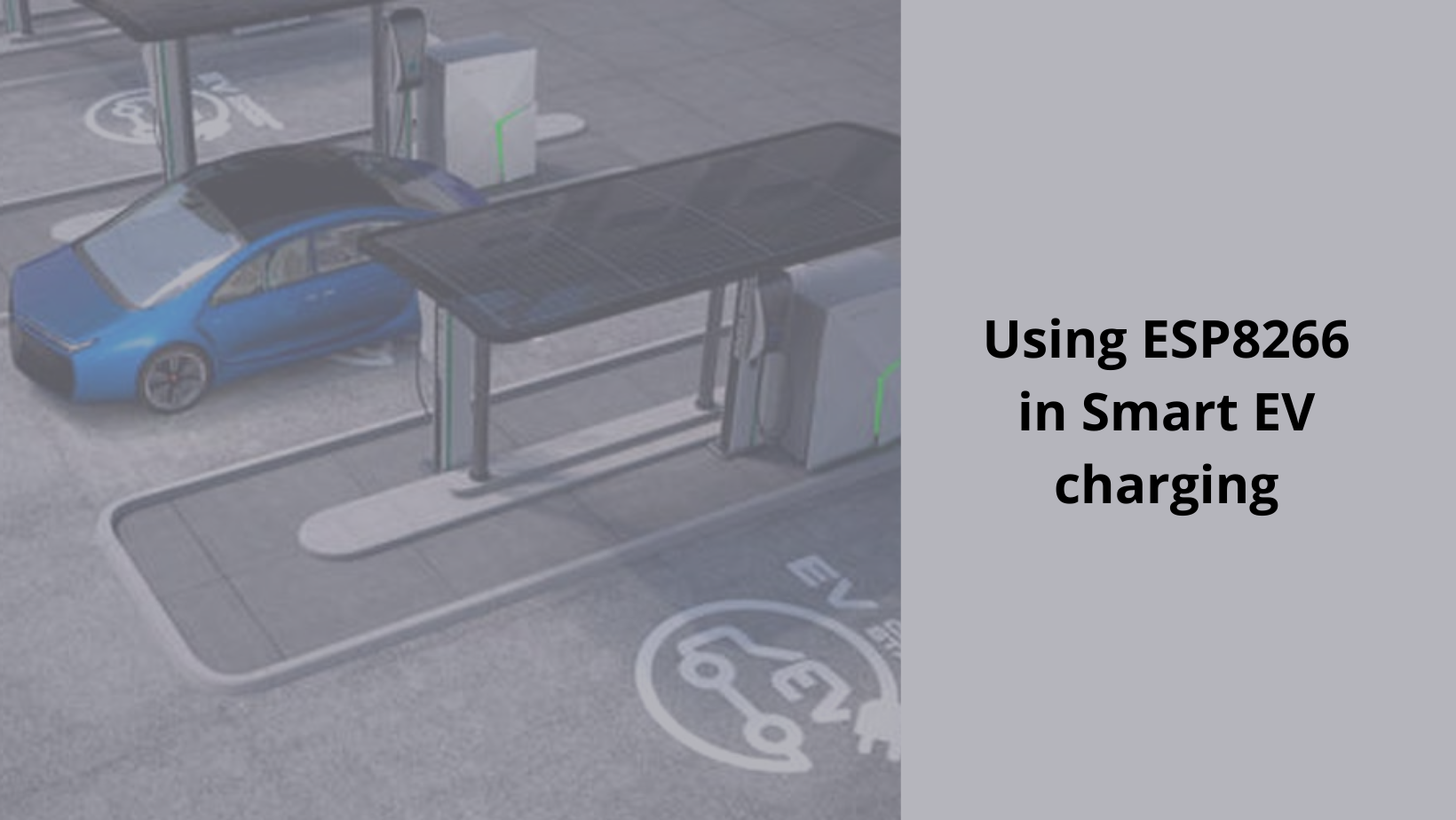
IoT project helps in automatic monitoring of the device and sends notifications to the phone, which is necessary if we want to reduce both the energy and time needed to maintain said devices. IoT system would be capable of turning on and off only when the device is connected and charge only when needed, and can be further improved to monitor other appliances. There are various modules available, which when paired up with the charging circuit will turn the charger into an IoT based device, like ESP8266, Particle Photon, and other Arduino based modules, but ESP8266 is the most cost effective and also has low power consumption.
Hope this article on Using ESP8266 in Smart EV charging is useful to you. Please read about Implementing OCPP over MQTT

